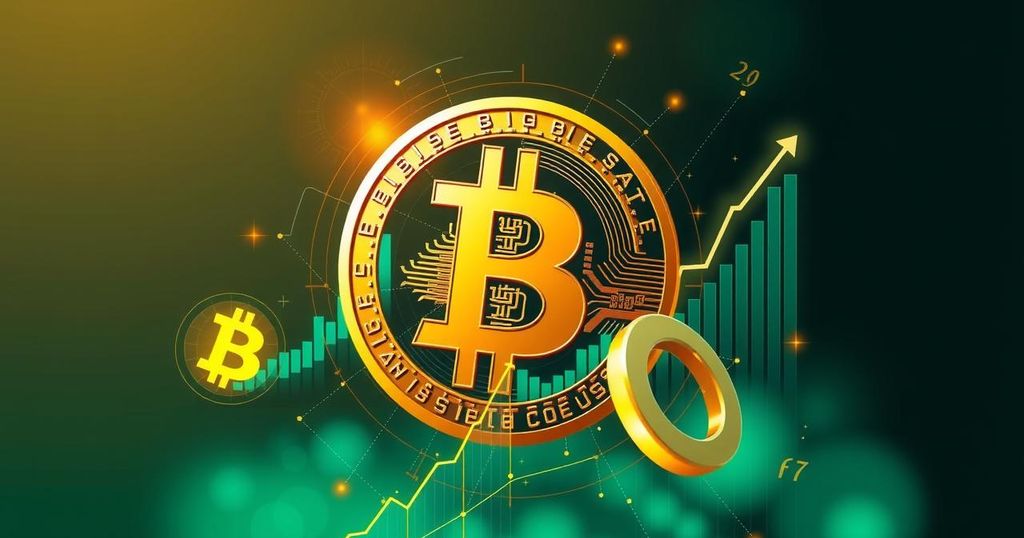Is Bitcoin the Future? Insights from Supporters and Critics
Bitcoin’s future is hotly debated in 2025. Supporters cite its limited supply, growing institutional adoption, and potential for financial sovereignty, while skeptics raise concerns around energy consumption, volatility, and regulatory risks. The prevailing view suggests Bitcoin may not replace currencies but serve as a digital store of value, indicating its ongoing evolution in the financial ecosystem.
The conversation surrounding Bitcoin’s future has reignited as we enter 2025. Recently, a lively thread on the Reddit community r/Bitcoin posed the crucial question: Is Bitcoin really the future? Responses spanned a wide spectrum, revealing both fervent optimism and skepticism about Bitcoin’s position in the global market.
One of the strong arguments for Bitcoin’s future is its scarcity. With a finite supply of 21 million coins, many Reddit users likened Bitcoin to gold. Its limited availability appeals to those concerned about inflation and the risk of currency devaluation. One user noted, “Fiat currencies can be printed endlessly. Bitcoin can’t. That’s its ultimate strength,” emphasising its appeal as a hedge against economic instability.
Institutional adoption is another key point driving the pro-Bitcoin argument. Major financial players, such as BlackRock with its Bitcoin ETFs, have started to engage with cryptocurrency, signalling a shift. This growing acceptance indicates that Bitcoin is moving beyond a mere tech experiment. A Reddit contributor said, “When pension funds and insurance companies start buying Bitcoin, you realise this isn’t just a tech experiment anymore.”
Supporters of Bitcoin often highlight its potential for financial sovereignty. In countries grappling with authoritarianism or hyperinflation, Bitcoin offers a tool for individuals to preserve wealth and transact beyond government control. One commenter passionate about this issue stated, “It’s not just about investment returns. It’s about giving people around the world the ability to own money that governments can’t control.”
Yet, amid this optimism, significant concerns remain. The environmental impact of Bitcoin mining is one hot topic. Critics argue it consumes excessive electricity, raising sustainability questions compared to other options. One skeptical user remarked, “Until Bitcoin solves its energy problem, it’s going to face constant political and social backlash.”
Moreover, Bitcoin’s notorious volatility presents an obstacle to its acceptance as a currency. Some commenters raised doubts about its reliability given its potential for drastic price drops within short timeframes. As discussed, stabilisation is key for any hope of mainstream adoption.
Then there’s the regulation issue. While Bitcoin is designed to be decentralised, users pointed out that entities like exchanges and payment processors could face stricter government control. One user cautioned, “Bitcoin itself is resistant to censorship, but the on-ramps and off-ramps are not.”
Interestingly, a significant portion of the discourse suggested that Bitcoin might not serve as a typical currency but rather as a digital store of value akin to gold. One prominent commenter summarised this sentiment well, asserting, “Bitcoin is not going to replace the dollar at Starbucks. It will coexist alongside traditional currencies as a hedge and alternative savings vehicle.”
In closing, the debate surrounding Bitcoin illustrates an important truth: its future remains uncertain. While it confronts substantial challenges, it is becoming increasingly integrated into the financial landscape. Whether it evolves into a foundational currency in a new economic framework or stays as a niche investment option, it has already altered perceptions of money and trust in financial systems. As aptly stated by one Reddit user, “Bitcoin isn’t a guarantee of a better future. It’s just the first real chance we’ve had in centuries.”




Post Comment